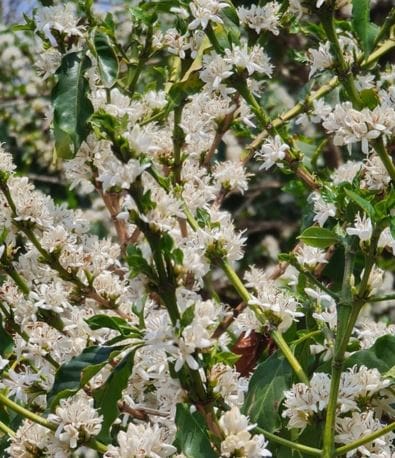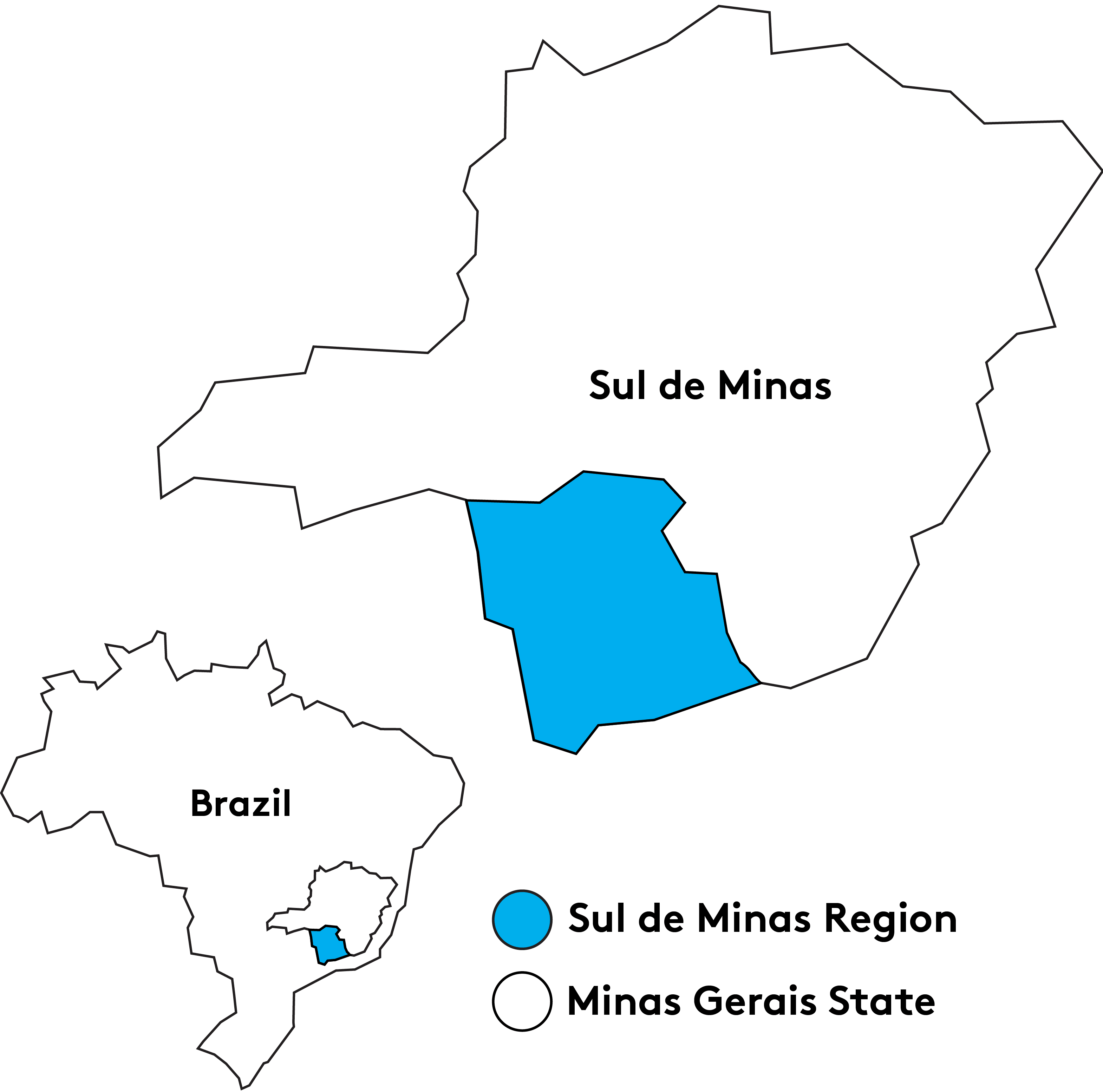Isadora Muniz Vilela is a fourth generation coffee producer operating Fazenda Córrego da Cidreira with her parents in Cabo Verde, Minas Gerais in the Sul de Minas growing region of Brazil. Isadora’s great-grandfather planted the family’s first coffee crops in Sul de Minas many years ago, and the family continues the legacy of farming in the region today.
When the family first acquired Fazenda Córrego da Cidreira they were faced with many challenges despite their background in agriculture. The topography of the region and lack of technology on the property made work difficult, especially as the coffee cherries are all harvested manually. But, through their shared passion for the coffee plant, for production, and for working in nature, they were able to establish their crop to cover all 90 hectares of the property.
Isadora and her family set their work apart through their dedication and care, making sure that they are involved in overseeing, executing, and assisting their team in every step of production. Their commitment extends to always looking forward and seeking improvements in all of their operations at the farm.
This lot of Catuai coffee underwent Natural processing. Catuai was made by the Instituto Agronomico (IAC) of Sao Paulo State in Campinas, Brazil by crossing Mundo Novo and Caturra varieties. Catuai coffees are cultivated widely across Brazil, and are known for their high productivity potential.




